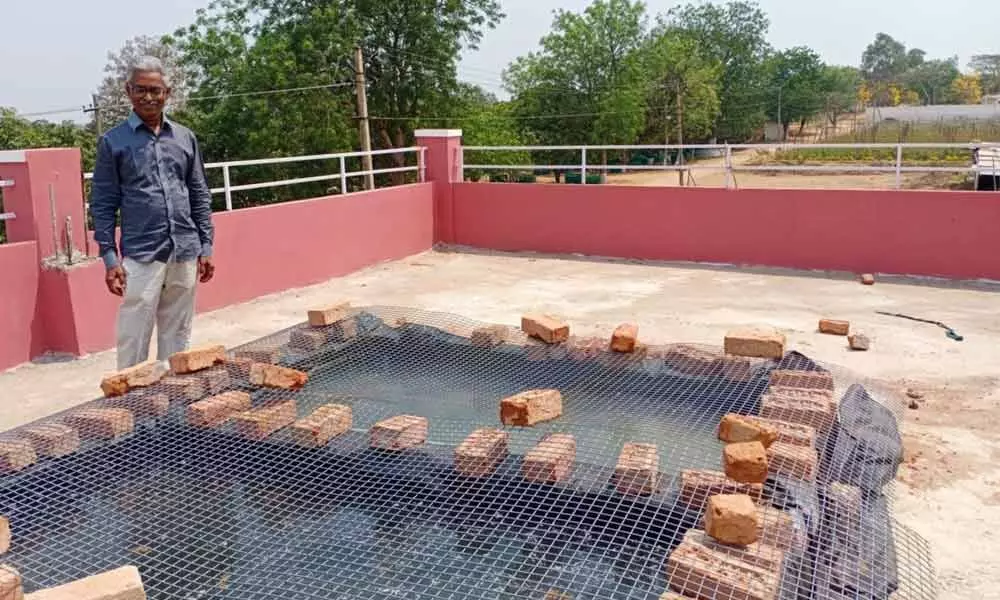Cheap solution to water evaporation losses

MS Subrahmanyan Raju experimenting at one of the farm ponds to arrest water evaporation
Edible oils are less dense (0.92) than water density (1). So, oil floats on water always and does not easily dissolve. Oils make a thin film on water and reflect heat, so radiation is less, and, naturally, evaporation is less. However, the technique is not meant to be used in general pools
Begumpet: Normally pools see ¼-½ inch loss of water a day due to evaporation; roughly 2-4 inches a week. For a normal-sized pool, you will lose 25,000 to 50,000 gallons in a year. A farmer, M S Subrahmanyam Raju from the city, is using a unique technique to arrest water evaporation losses in farm ponds. However, he cautions that the technique is not meant to be used in general pools. "By arresting water loss, we can keep project cost under control. Otherwise, we end up using more water, more energy," he said
Raju, who is general secretary of Telangana State for Go Aadharitha Prakriti Vyavasayadarula Sangham, has carried out many experiments in connection with soil reclamation. He has many innovations to his credit. He says farmers should adopt simple techniques to prevent evaporation. Raju is planning to create more awareness through seminars, social media/traditional media as service to the farming community.He has been steadily imparting them several techniques without any motives. He can be reached on mobile 76598 55588
"I undertook two experiments – one at Gingurthy village with Ekalavya Organic Polytechnique School and the other with Krishi Vignan Kendra. The procedure developed by me yielded good results. My experiment was to reduce water evaporation losses in farm ponds exclusively for agriculture purpose. We could reduce losses up to 70 per cent with eco-friendly treatment and edible materials. The materials are user-friendly and easily available. No need to purchase any branded or commercial product. They are available everywhere; farmers can procure and do their own."
Physical properties of materials to be selected should be edible, less dense than water and higher evaporation point when compared to water. The material is any edible (cooking) oil. Once used or discarded oils are better for reducing expenditure. "Edible oils are less dense (0.92) than water density (1). So, oil floats on water always and does not easily dissolve. The edible oils evaporation point (120C) is far higher than water evaporation point (5C) approximately. Evaporation point varies due to several parameters. Oils make a thin film on water and reflects heat, so radiation is less, naturally evaporation is less," he informs.
"Cost of discarded edible oil is Rs50 a litre. For thousand sqm, we use 25 litres first time. Then 13 litres a month. March-August is critical for water as temperature varies from 30 to 45 centigrade.
April, May, June months have high temperatures and March, July, August have above normal temperature. So, on an average, as per my experience, 5 mm to 15 mm water evaporates a day," says Raju. As per his calculations, for a pond with 1000 sqm area, a farmer can save 10,000 litres a day, 18,00,000 litres in six months with an investment of Rs4,500.








